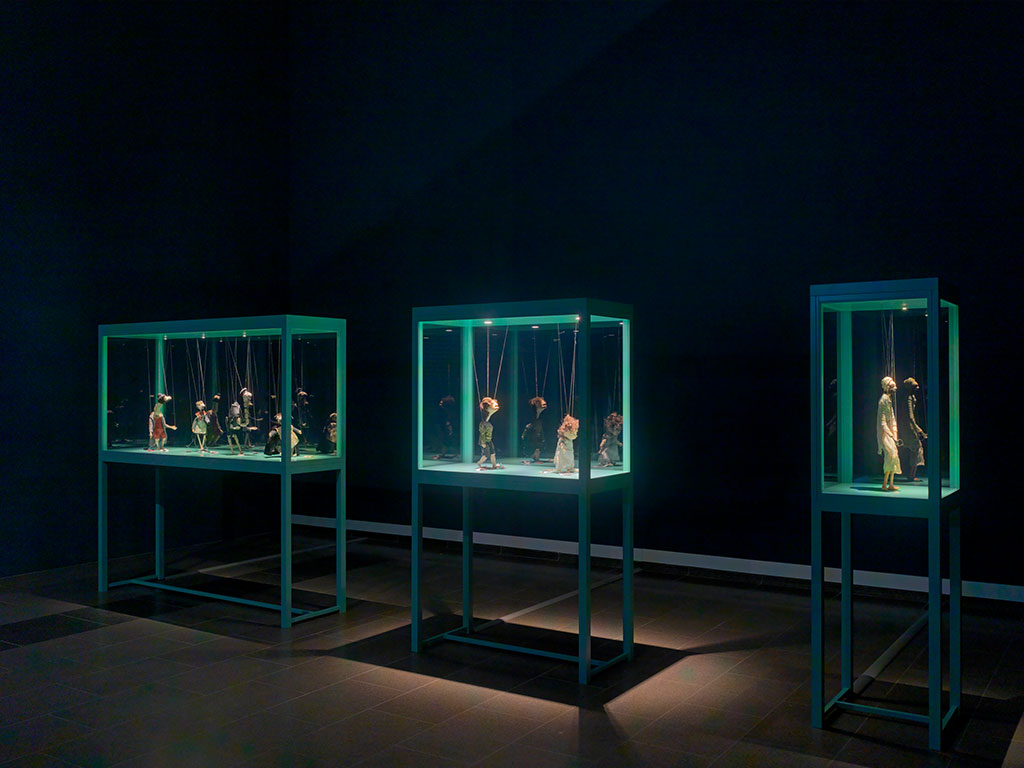In his first major museum exhibition in Germany Egyptian artist Wael Shawky (*1971) presents his film trilogy “Cabaret Crusades”, in which marionettes cabaret-like reenact the history of the medieval crusades. Shawky’s multiple awarded films explore the ways in which projections and manipulations of the foreign, as well as confrontations with it, actually function. What lies behind the multi-faceted mechanisms of constructing and telling history?
While the first two parts of Shawky’s “Cabaret Crusades” will be extensively screened at Grabbehalle from 6 September, the in cooperation with the Kunstsammlung Nordrhein-Westfalen produced third part “The Secrets of Karbala” will be shot in the same space and premiere on the 4 December. Until then Wael Shawky and the Kunstsammlung Nordrhein-Westfalen will transform the exhibition space into a site of art production in an unprecedented way. In “Cabaret Crusades,” among the much discussed discoveries at Documenta 13, richly detailed and costumed marionettes perform against fantastical backdrops, reenacting the marital events of the eleventh-twelfth centuries in ways that are simultaneously childlike and gruesome.
The scenario of the trilogy is based on the book “The Crusades Through Arab Eyes” (1983), the work of the French-Lebanese author Amin Maalouf (*1949). Shawky mixes together the European perspective, notoriously shaped by fantasy and wishful thinking about the Middle East, with Arab forms of representation. With the historical Crusades, Shawky takes up a theme that seems highly current today, even 1000 years later, in light of current and ongoing conflicts in the Middle East. Today as well, the locations featured in the film, among them Aleppo, Damascus, and Baghdad, are theaters of war. Inevitably, these puppets, controlled by strings, and seemingly set in motion by remote control, pose the question: Who really pulls the strings

